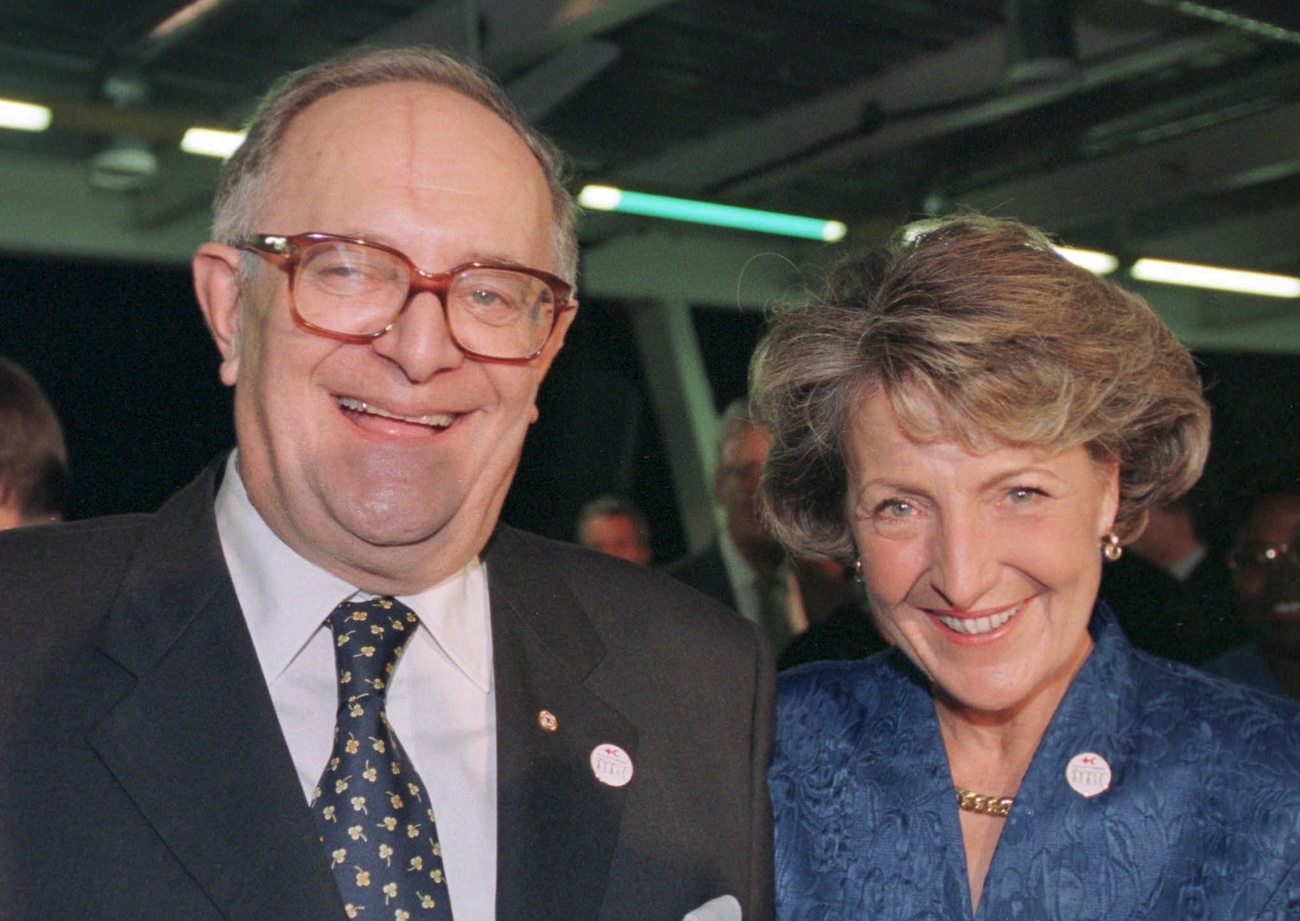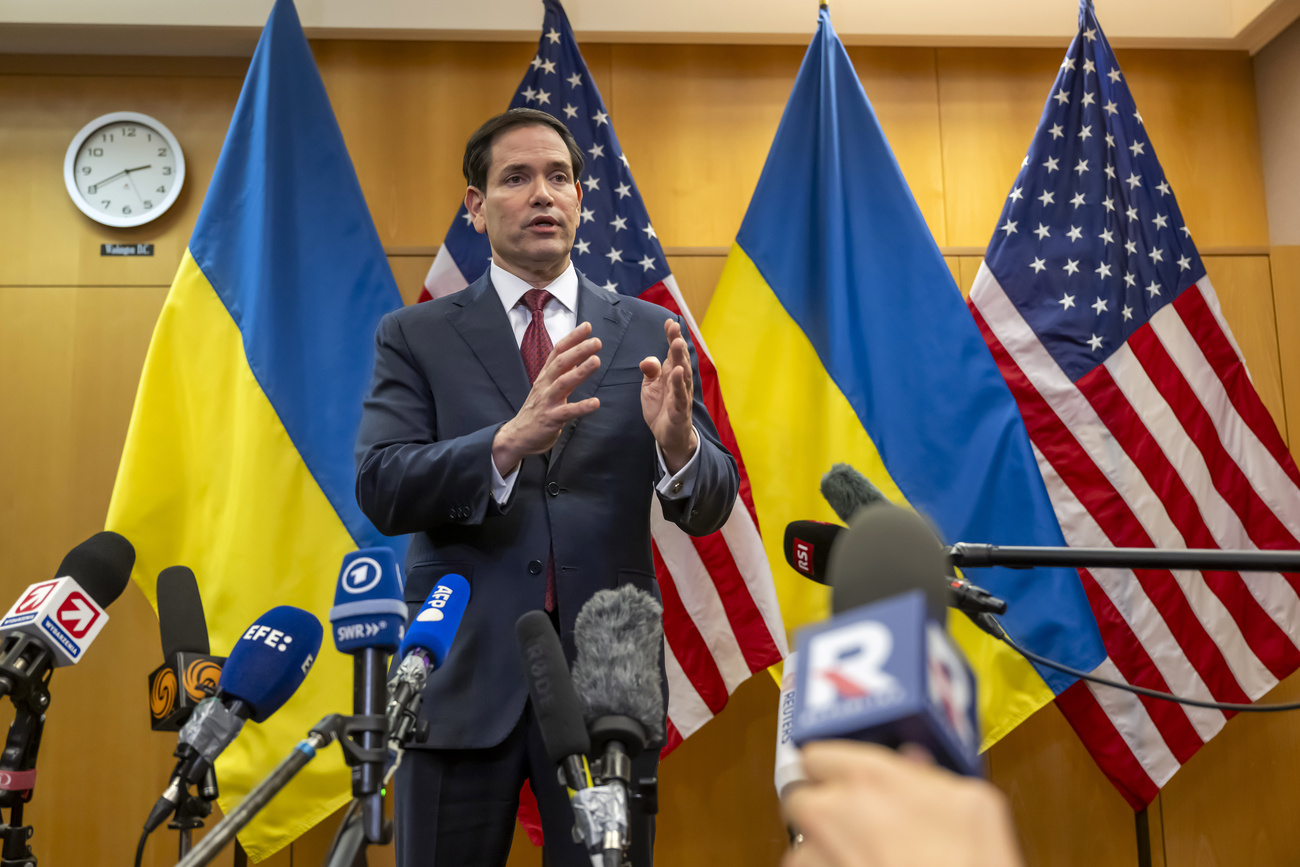
Former Red Cross president Cornelio Sommaruga dies

Cornelio Sommaruga, long-standing president of the International Committee of the Red Cross (ICRC), has died in Geneva at the age of 91, the organisation announced on Monday.
The Rome-born Swiss lawyer and diplomat led the Geneva-based ICRC from 1987 to the end of 1999.
According to the ICRC, Sommaruga died on Sunday. The organisation paid tribute to its former president on Monday as a reformer who, among other things, lifted the requirement that delegates must also be Swiss citizens.
Sommaruga, the son of a diplomat from Lugano in the southern canton Ticino, attended primary and secondary school in Rome and Lugano and completed his baccalaureate in the Italian capital. He then studied in Rome, Paris and Zurich, graduating in 1957 with a doctorate in law from the University of Zurich. He initially worked in a bank. Until the end of 1968, he held several diplomatic posts in The Hague, Bonn and Rome.
Sommaruga worked as Deputy Secretary General of the European Free Trade Association (EFTA) in Geneva and was a member of the Directorate of the Federal Office for Foreign Economic Affairs, the predecessor of today’s State Secretariat for Economic Affairs (SECO). He then worked there as State Secretary from 1984 to 1986 before resigning in 1987 to become president of the ICRC.
World in upheaval
During his 12 years in office, Sommaruga and the ICRC experienced major historical upheavals such as the fall of the Berlin Wall and the associated collapse of the Soviet Union, which in turn led to the dissolution of the Eastern bloc. A few years later, genocide took place in Rwanda. The number of ICRC missions increased significantly.
The murder of six Red Cross employees in Chechnya in December 1996 was the toughest test for Sommaruga as ICRC president. In order to better protect the staff of humanitarian organisations, he became even more committed to dialogue with the parties to the conflict.
+ Sommaruga puts brave face on Jenin debacle
Respecting the independence of the ICRC was particularly important to Sommaruga. He also urged his successor Jakob Kellenberger to do the same: the politicisation of humanitarian work must be prevented at all costs.
Dialogue with the Jewish community
Sommaruga himself counted the resumption of dialogue with the Jewish community as one of the successes of his time in office. At a commemorative event at the former Nazi extermination camp Auschwitz in 1995, he regretted the “mistakes and omissions” of the ICRC during the murder of millions of Jews in the Holocaust.
Kellenberger replaced Cornelio Sommaruga as ICRC President on January 1, 2000. UN Secretary-General Kofi Annan then appointed Sommaruga to a team of experts that drew up a critical report on the UN’s peace missions. From May 2000, Sommaruga was also president of the International Centre for Humanitarian Demining (CIDHG) in Geneva.
Sommaruga remained active into old age, both as president of the Karl Popper Foundation in Zug and as a member of the board of trustees of the Open Society Institute in Budapest. In 2002, he became president of the International Association of Initiatives of Change in Caux near Montreux. He was also on the initiative committee for the Responsible Business Initiative.
Cornelio Sommaruga, who was honoured with a number of awards for his diplomatic and humanitarian work, including several honorary doctorates, lived in Geneva and was the father of six children, one of whom, Carlo Sommaruga, is a parliamentarian for the Social Democratic Party. Cornelio Sommaruga was also related to former government minister Simonetta Sommaruga.
Translated from German by DeepL/ts
This news story has been written and carefully fact-checked by an external editorial team. At SWI swissinfo.ch we select the most relevant news for an international audience and use automatic translation tools such as DeepL to translate it into English. Providing you with automatically translated news gives us the time to write more in-depth articles.
If you want to know more about how we work, have a look here, and if you have feedback on this news story please write to english@swissinfo.ch.

In compliance with the JTI standards
More: SWI swissinfo.ch certified by the Journalism Trust Initiative




























You can find an overview of ongoing debates with our journalists here . Please join us!
If you want to start a conversation about a topic raised in this article or want to report factual errors, email us at english@swissinfo.ch.